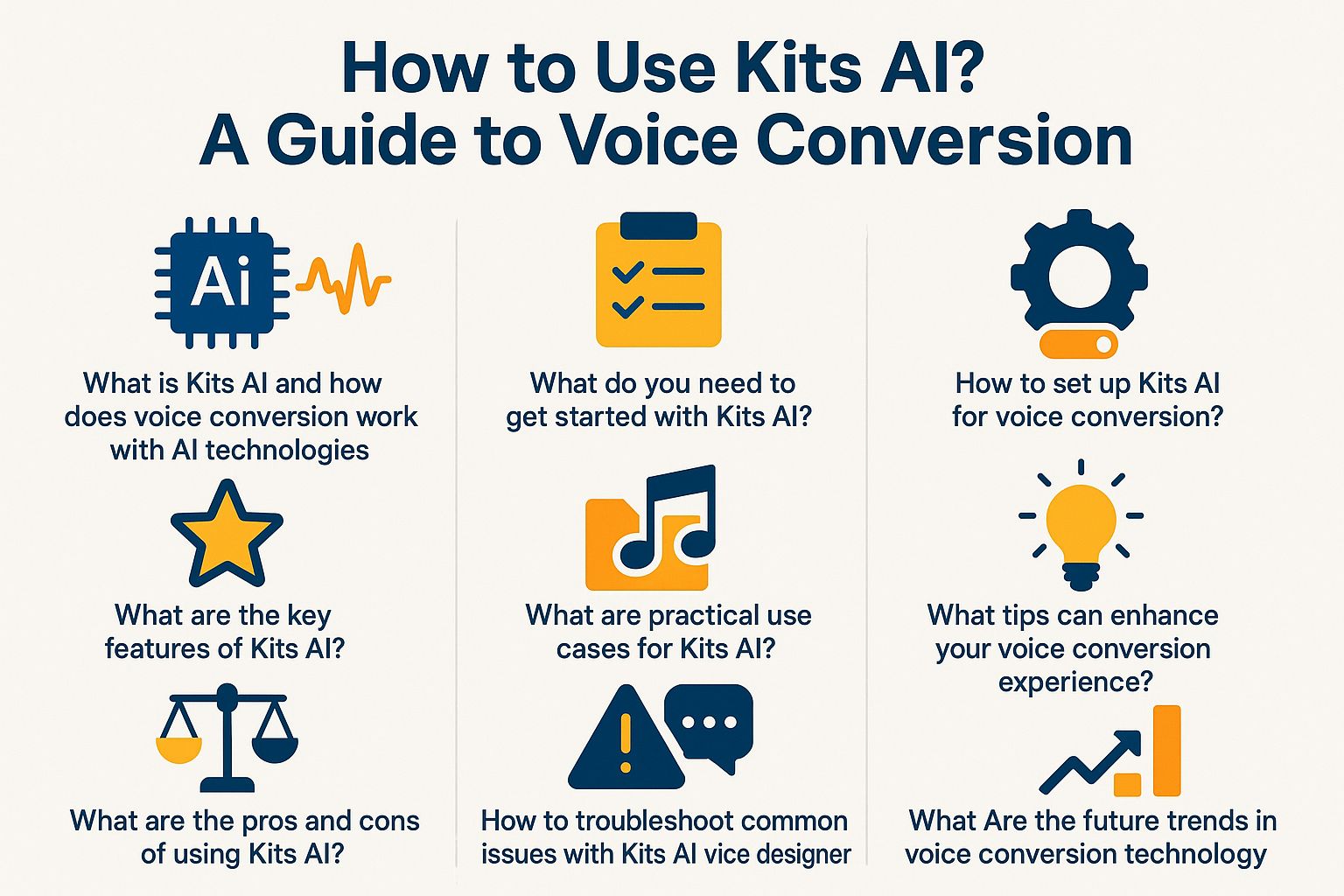
Transform your storytelling and music production with lifelike voices. This guide explores Kits AI and its voice conversion technology for realistic character voices and vocal effects. Whether you’re a beginner or looking to enhance your existing projects, we’ll walk you through the setup, features, and practical tips to get realistic results with AI singers and voice models. Let’s unlock the potential of Kits AI together!
Key Takeaways:Understand the AI technologies behind Kits AI and how it works for voice conversion.Get started with Kits AI by ensuring you have the necessary equipment and software.Make the most of Kits AI’s key features like voice cloning, AI voice generator, and music production for realistic results.
What is Kits AI?
Kits AI uses advanced AI technologies to help you with voice conversion and text-to-speech applications. This lets you convert audio recordings into unique voices.
It all works by leveraging voice models that are created from various data inputs for seamless results, making the process pretty seamless and exciting for you.
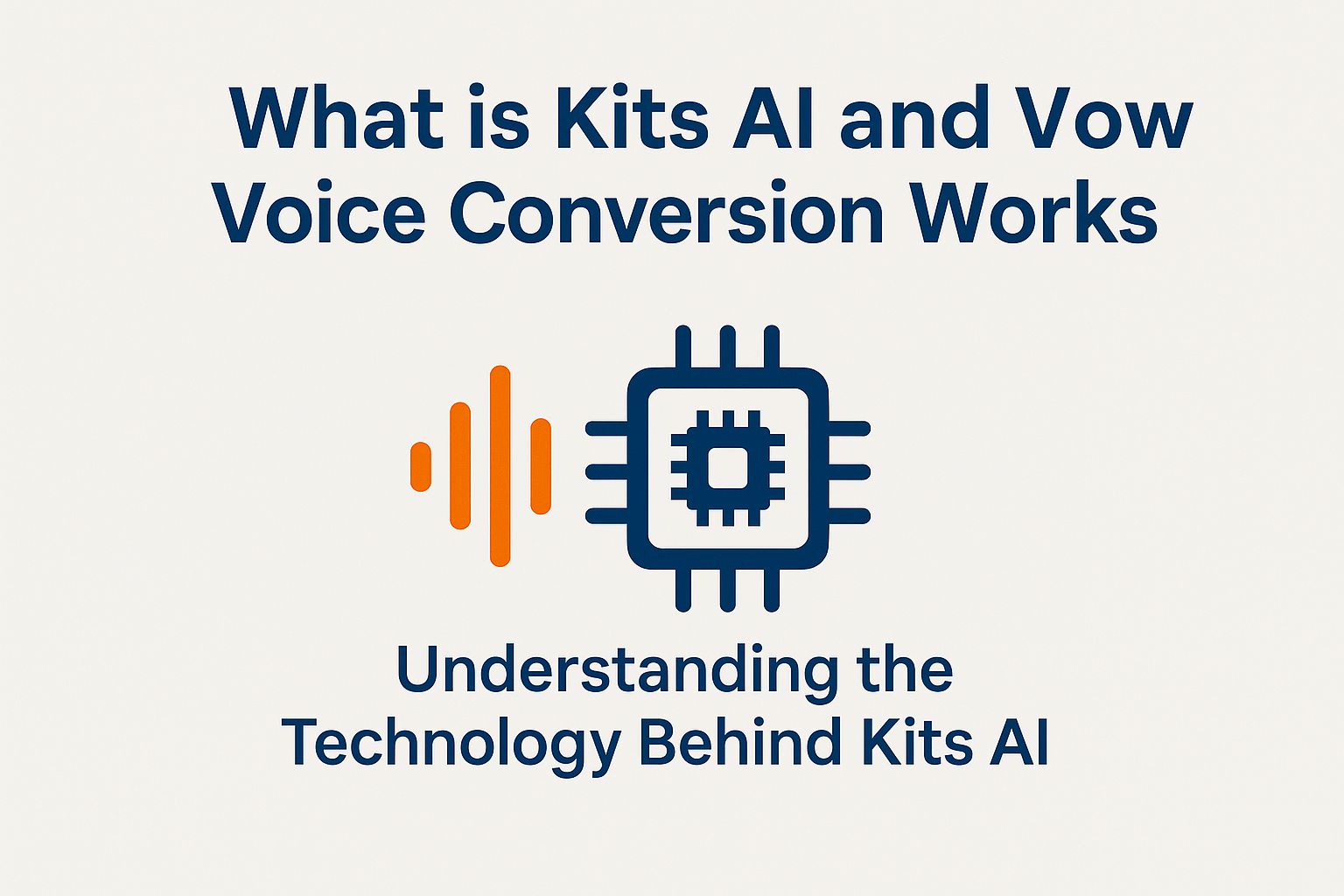
Technology Behind Kits AI
Kits AI uses advanced algorithms and neural networks to create voice models that mimic human speech and emotions, providing realistic outputs. This technology taps into deep learning to analyze voice recordings, capturing details like tone, pitch, and rhythm for vocal production.
You’ve probably heard of companies like OpenAI and Google, who have made huge strides in this area with tools like WaveNet and Tacotron. These tools have really boosted the naturalness of synthesized speech.
What sets Kits AI apart is its use of feedback loops. It continuously refines its models based on user interactions, which not only makes the voices sound more realistic but also allows for personalized voice generation. This means it’s perfect for applications in virtual assistants, audiobooks, and customer service automation.
Getting Started
To kick off your voice conversion journey with Kits AI, you’ll want to gather the right software and hardware to start voice conversion with Kits AI. This will help you achieve seamless integration and get the best performance possible.
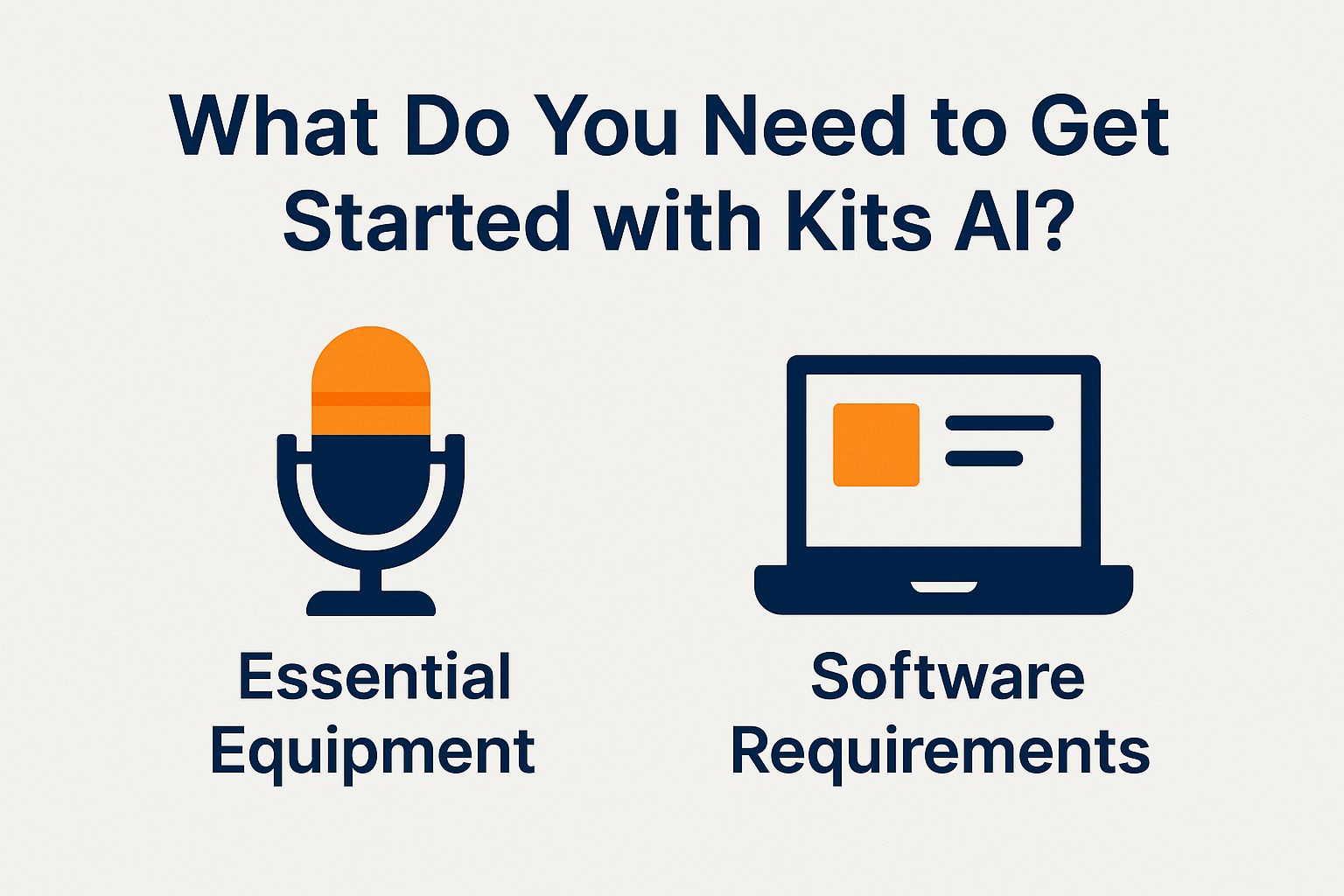
Equipment Needed
For a successful setup, ensure you have an audio interface, quality microphones (like Shure SM7B), and a Digital Audio Workstation (DAW) such as Logic Pro or FL Studio for prepping your audio files.
It’s also worth considering a good pair of studio headphones, like the Audio-Technica ATH-M50x, so you can accurately monitor your recordings. The Focusrite Scarlett 2i2 is an excellent audio interface option too. It gives you high-quality preamps and USB connectivity for a simple setup.
Don’t forget to pair these tools with plugins like iZotope RX for noise reduction to keep your voice recordings sounding clear and professional. Take some time to get to know your DAW’s features; this will help you optimize your workflow and significantly improve your audio editing process.
Setting Up Kits AI
Setting up Kits AI for voice conversion is simple. You’ll want to make sure your system is configured just right to get the best performance out of it.
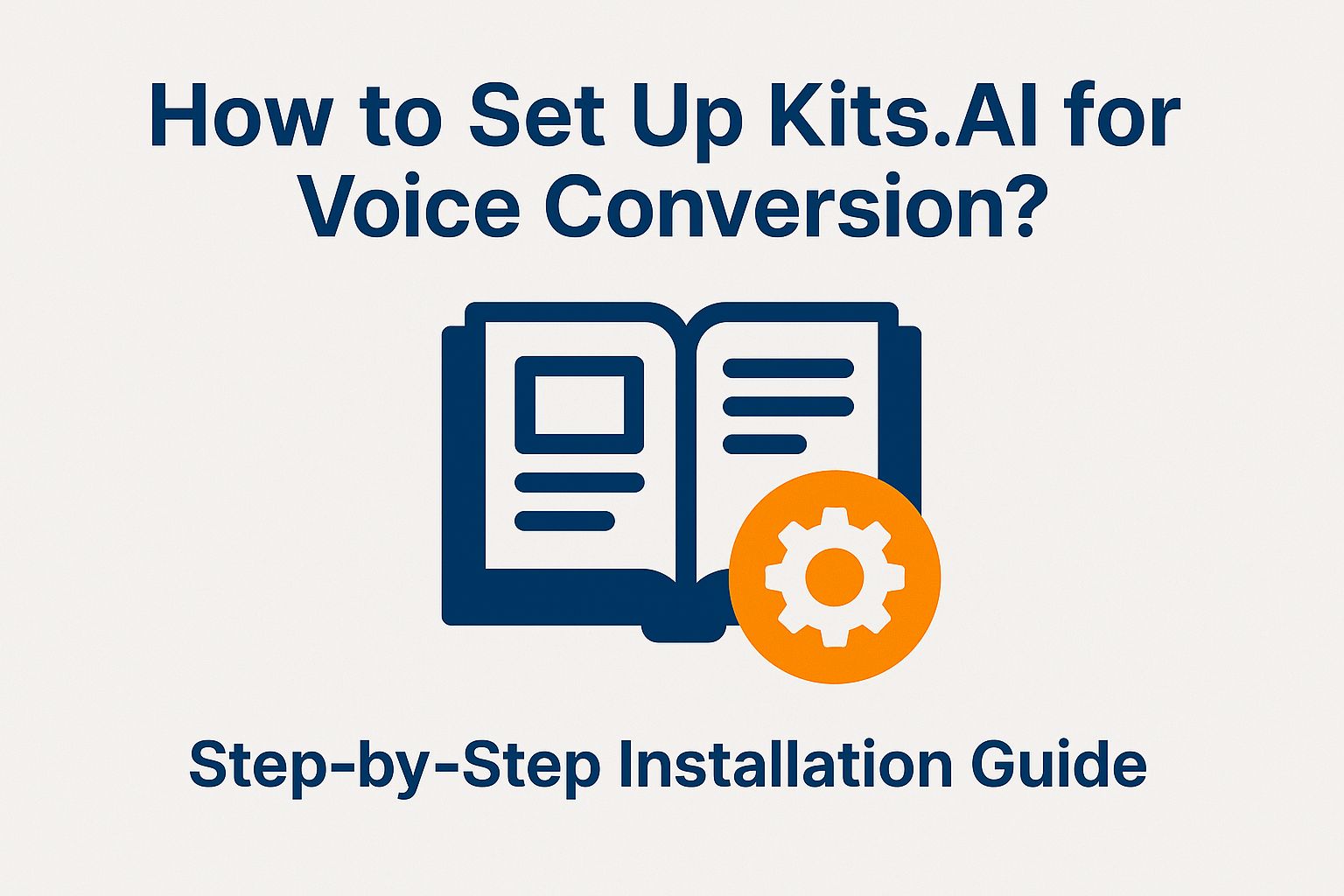
Installation Guide
Follow these steps to easily install and set up Kits AI on your system, making sure you have a smooth user experience.
- Download the latest Kits AI version from the official website. Ensure it’s compatible with your OS.
- For Windows, run the installer as an administrator to avoid permission issues.
After installation, open the app to verify it and check for updates. For a better experience, configure settings like notifications and data preferences using the on-screen prompts. Complete these steps in under 30 minutes!
Key Features
Kits AI offers features for voice conversion in music production, storytelling, and cinematic experiences.
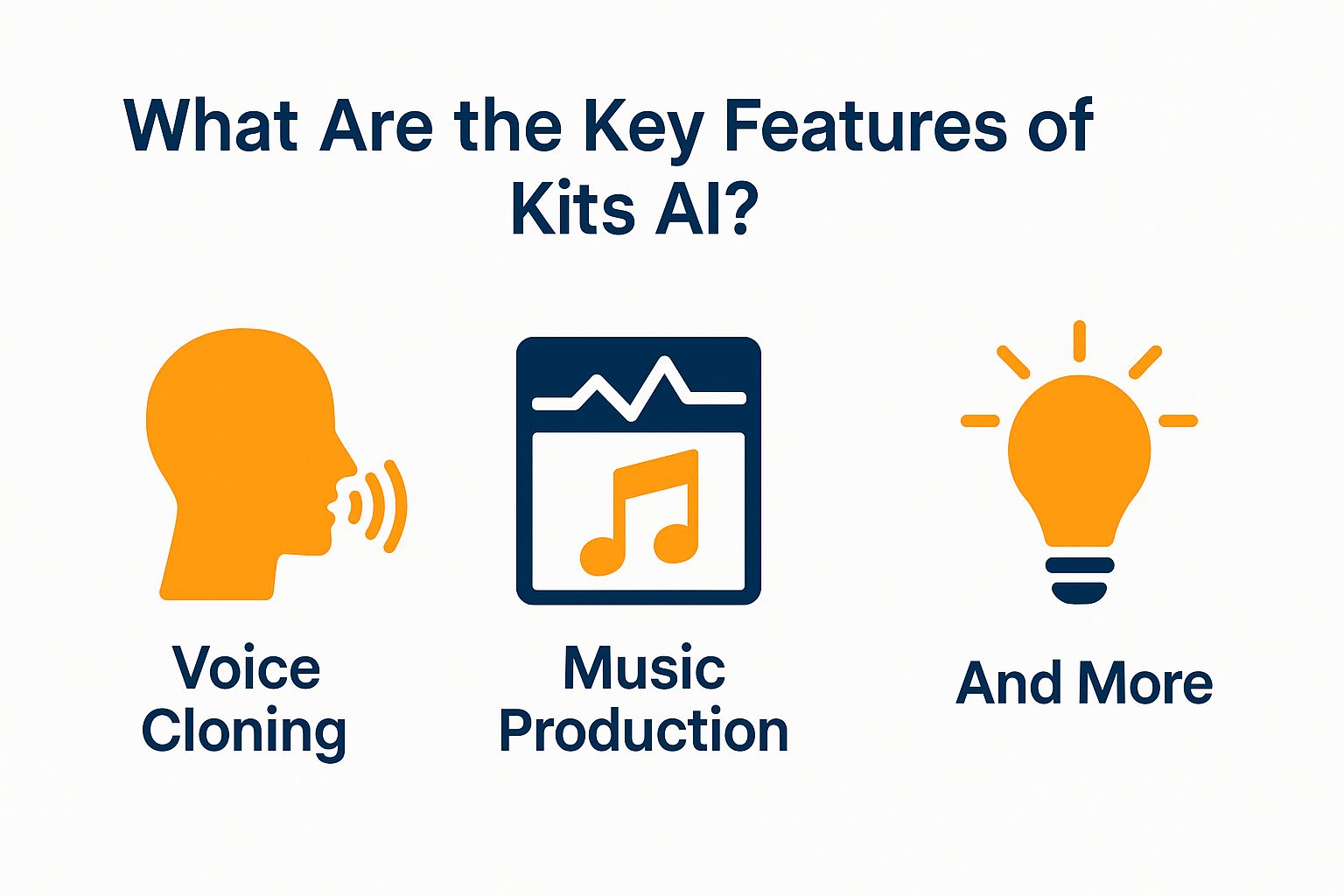
Voice Cloning and Music Production
Explore Kits AI’s features, like advanced voice cloning and the Singing Voice Generator for unique vocal performances.
Kits AI provides tools that integrate smoothly into your audio workflows.
Use the built-in sound library with thousands of royalty-free tracks for background music.
The collaboration feature allows multiple users to work on a project simultaneously, ideal for remote teams. Kits AI is a valuable creative partner.
Many creators use Kits AI with software like Ableton Live for better control over audio projects.
Practical Use Cases for Kits AI
Kits AI’s versatility offers practical use cases, from boosting music production to enhancing voice-driven storytelling.
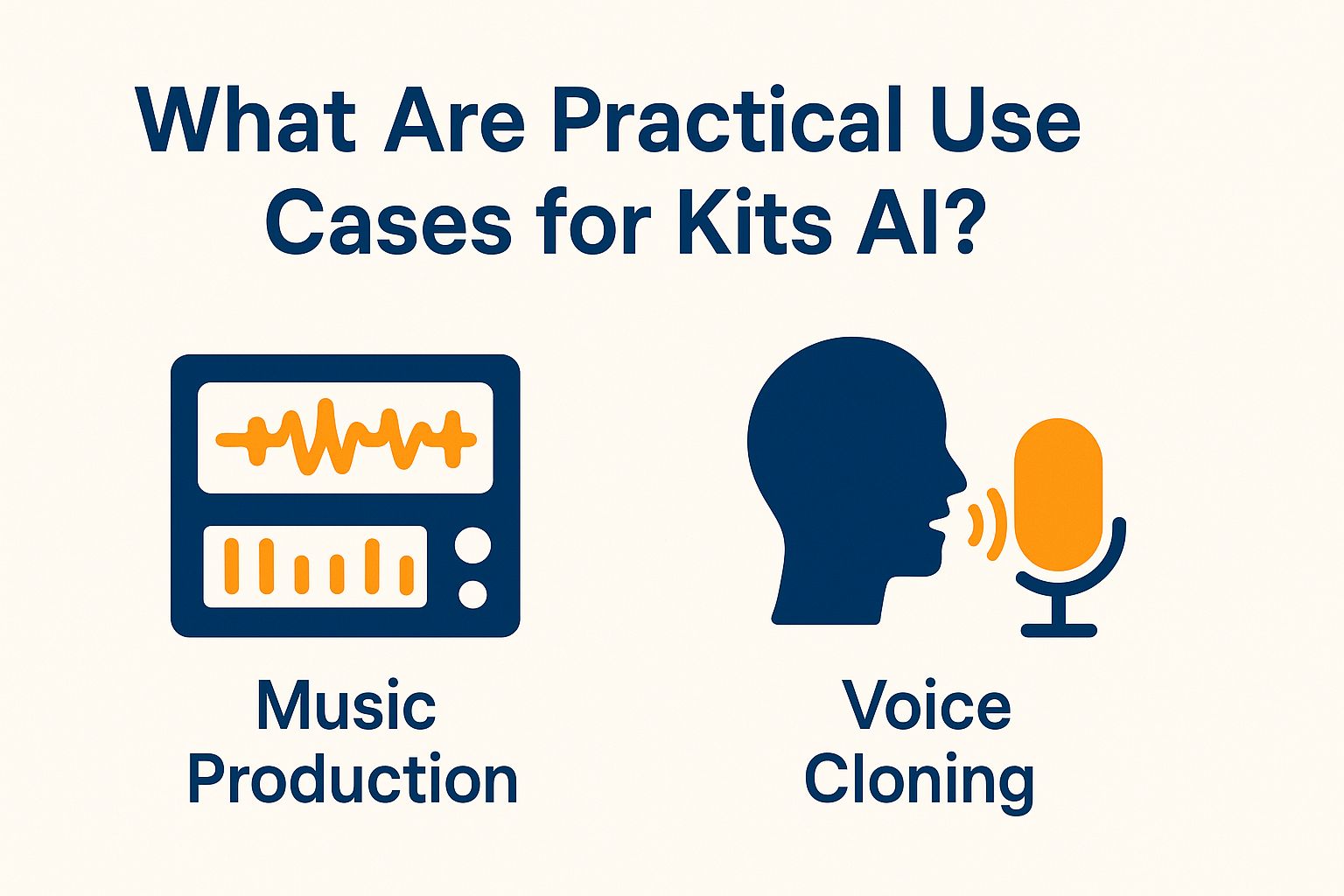
Examples in Music Production
In music production, use Kits AI to create vocal tracks that enhance your song’s sound and vibe.
Create lifelike vocals for any genre with Kits AI, including pop and hip-hop. Use Kits AI’s voice models to craft a sultry R&B track with various vocal styles and harmonies.
The intuitive interface allows easy pitch and emotion adjustments, generating multiple takes in minutes. A music composer created unique verses that matched a summer hit’s vibe, increasing listener engagement and streaming.
Using AI-generated vocals allows you to push creative boundaries and save studio time.
Tips to Enhance Your Voice Conversion
Follow key tips and best practices to maximize your voice conversion experience with Kits AI.
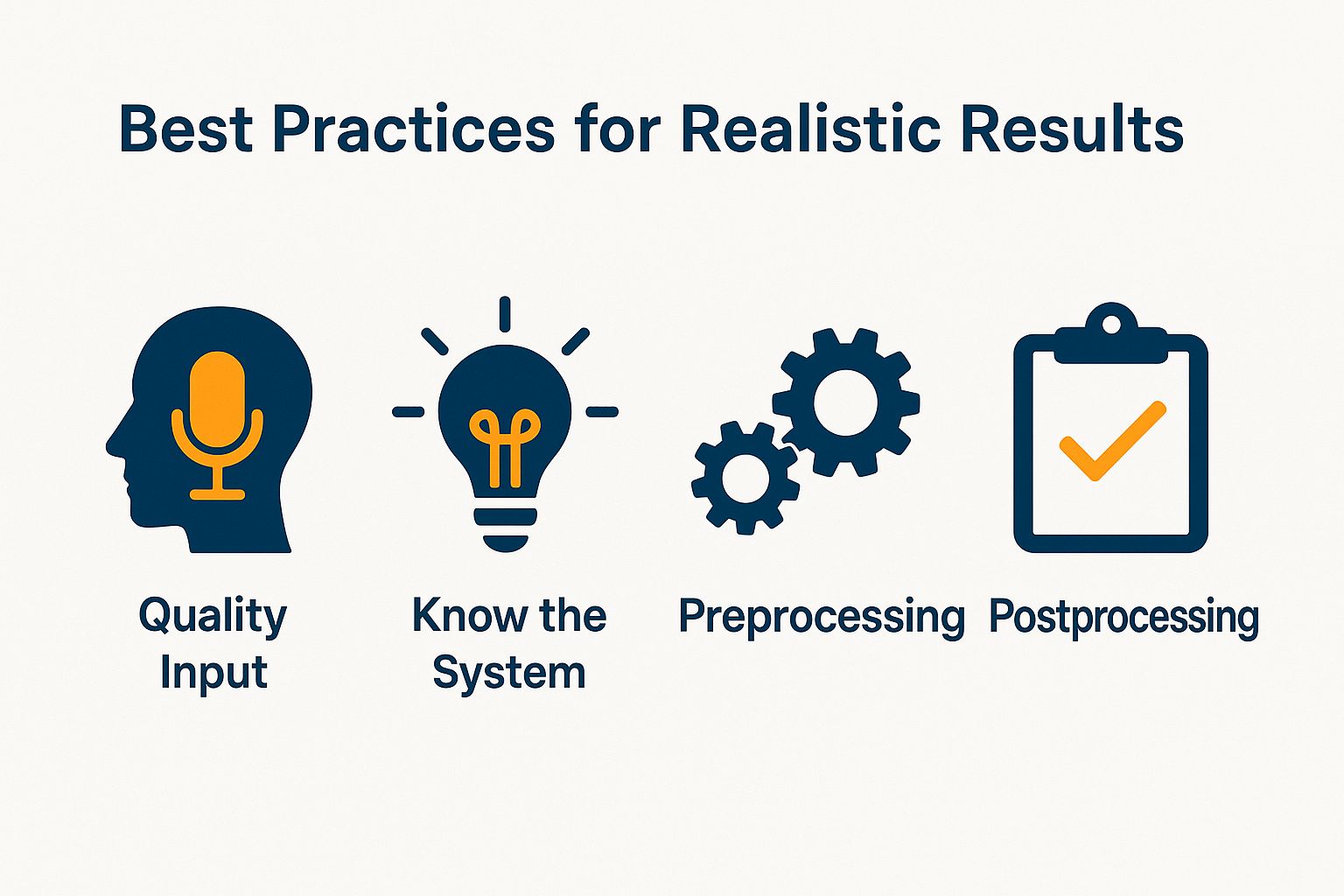
Best Practices for Voice Conversion
Keep these best practices in mind to achieve high-quality voice conversions with Kits AI.
- Use high-quality audio recordings.
- Layer vocal tracks to improve your music workflow.
- Use precise EQ settings and pitch correction to enhance your voice.
- Experiment with different voice styles and tones offered by Kits AI.
Pros and Cons
Kits AI has pros and cons to consider before using.
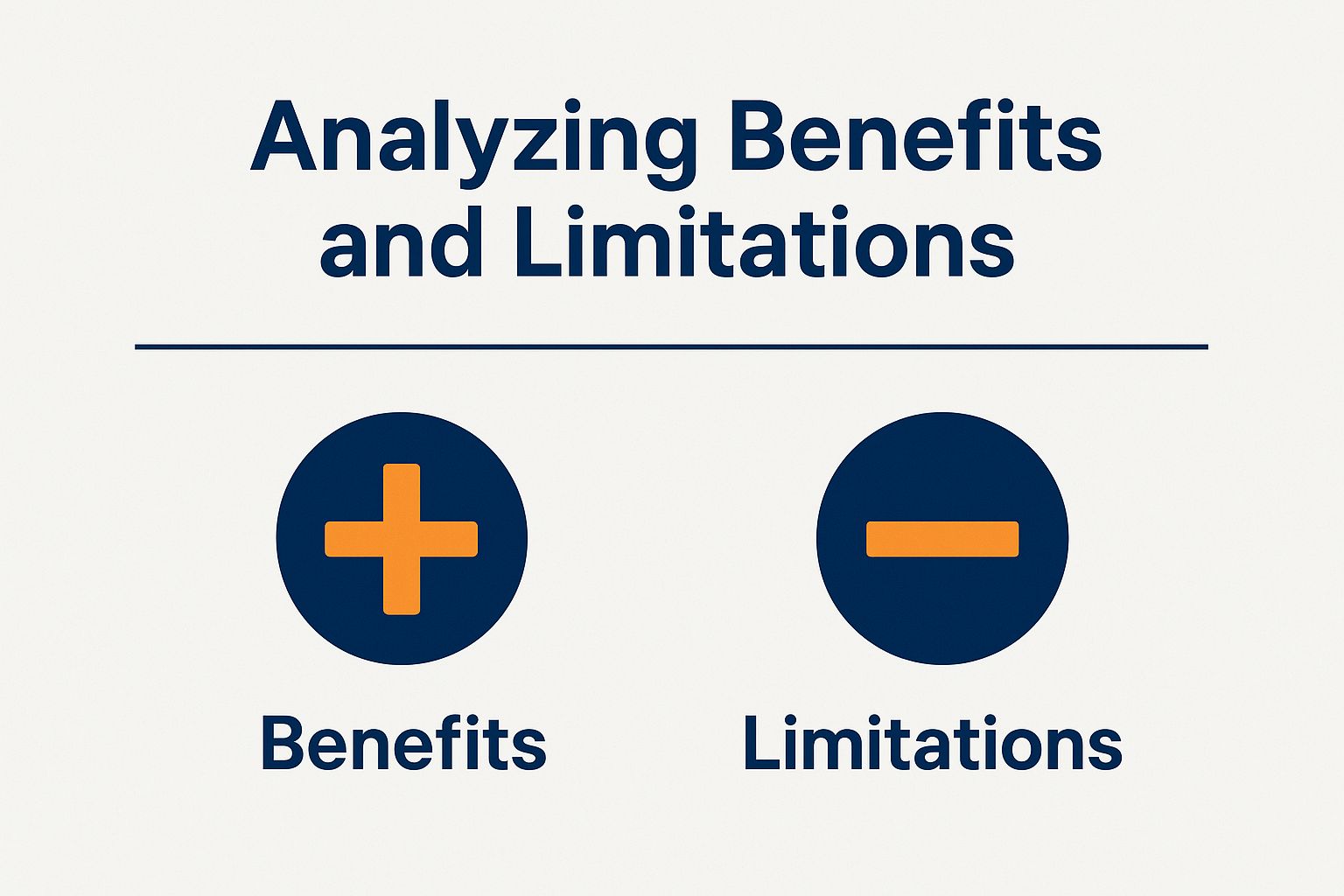
Benefits and Limitations
Evaluate the benefits and limitations of Kits AI for voice conversion. One of the standout perks of Kits AI is its high-quality voice output, which often sounds natural and expressive.
It offers a range of voice options to customize your project tone.
However, consider limitations, such as ethical issues and misuse risks. It’s super important for you to ensure transparency, especially if you’re using it for commercial purposes.
Using tools like Audacity can really help you clean up audio recordings, making your final product even better. Just remember to always prioritize ethical standards and user consent when diving into the world of voice cloning technology.
Troubleshooting Issues
You may encounter common issues while using Kits AI. But don’t worry, there are some effective troubleshooting methods you can try to get things back on track.
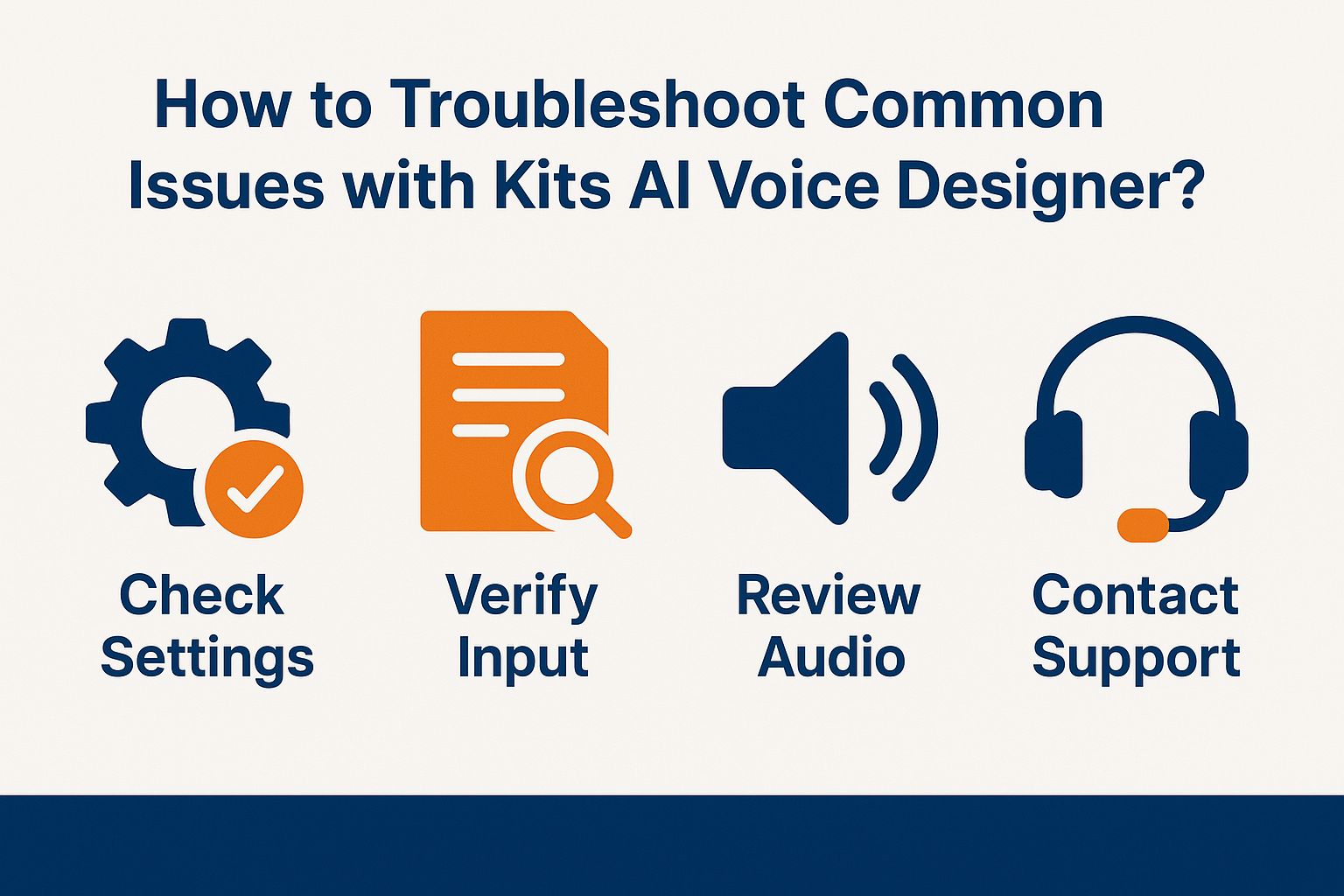
Solutions to Frequent Problems
Find detailed solutions for common issues to improve your Kits AI experience.
First, check your input settings. Incorrect configurations can cause unwanted output. Don’t forget to refer to the troubleshooting guide on the Kits AI support page if you need a little help.
If you’re noticing some delays in response time, take a moment to assess your internet connection and optimize your device’s performance. Tools like Speedtest can be lifesavers for diagnosing any internet hiccups.
Regarding content generation problems, make sure to tap into the templates provided within Kits AI. They’re there to help you make the most of its capabilities, especially when recording dialogue or choosing voice models.
And don’t underestimate the power of community forums; engaging with community voices can give you valuable insights and shared solutions from other users who’ve been in your shoes.
Future Trends
AI advancements will improve voice conversion features and applications. As AI technology keeps evolving, you can expect voice conversion capabilities to grow and introduce some really innovative features and applications, including audio workflow integration and engaging audience techniques.
It’s an exciting time to see how these advancements can change the way we interact with technology!

Insights into Evolving AI Capabilities
The evolving capabilities of AI in voice conversion hint at a future where you’ll find seamless processes and interactions between humans and machines becoming the norm.
Recent advancements in AI voice models enhance emotional expression. This makes content delivery more relatable and engaging.
Tools like Descript’s Overdub and Respeecher use deep learning to create realistic voice clones that capture emotion.
As a storyteller, you can use these technologies to add expression to your narratives. This turns basic dialogue into captivating performances.
By incorporating AI insights about audience preferences, you can fine-tune your tone and style.
This approach enriches user engagement and boosts creativity across storytelling mediums.
Frequently Asked Questions
Can Kits AI be used for music production and voice cloning?
Yes, Kits AI is a versatile tool that can be used for both music production and voice cloning. It allows users to convert voices into different styles, tones, and languages, making it a powerful tool for various creative projects.
How to start using Kits AI?
To use Kits AI, you will need an internet connection and a computer with a microphone. You will also need to create an account on the Kits AI website and purchase a subscription to access all the features.
How does Kits AI function?
Kits AI uses a combination of deep learning and artificial intelligence to analyze and transform voices. It works by analyzing the unique characteristics of a voice and then generating a new voice that matches the desired style or tone.
What are Kits AI’s key features?
Kits AI offers a variety of features, including voice conversion, audio effects, pitch correction, and vocal enhancement. It also allows users to save and export their converted voices for use in different projects.
Tips for realistic results with Kits AI
To achieve the most realistic results with Kits AI, it’s important to use high-quality audio recordings and experiment with different settings and styles. It’s also helpful to train the model with a large dataset to improve the accuracy of the voice conversion.
Pros and cons of using Kits AI
The pros of using Kits AI include its advanced technology, user-friendly interface, and ability to produce high-quality results. The cons include the need for a subscription and the potential for limited customization options compared to other voice conversion software.
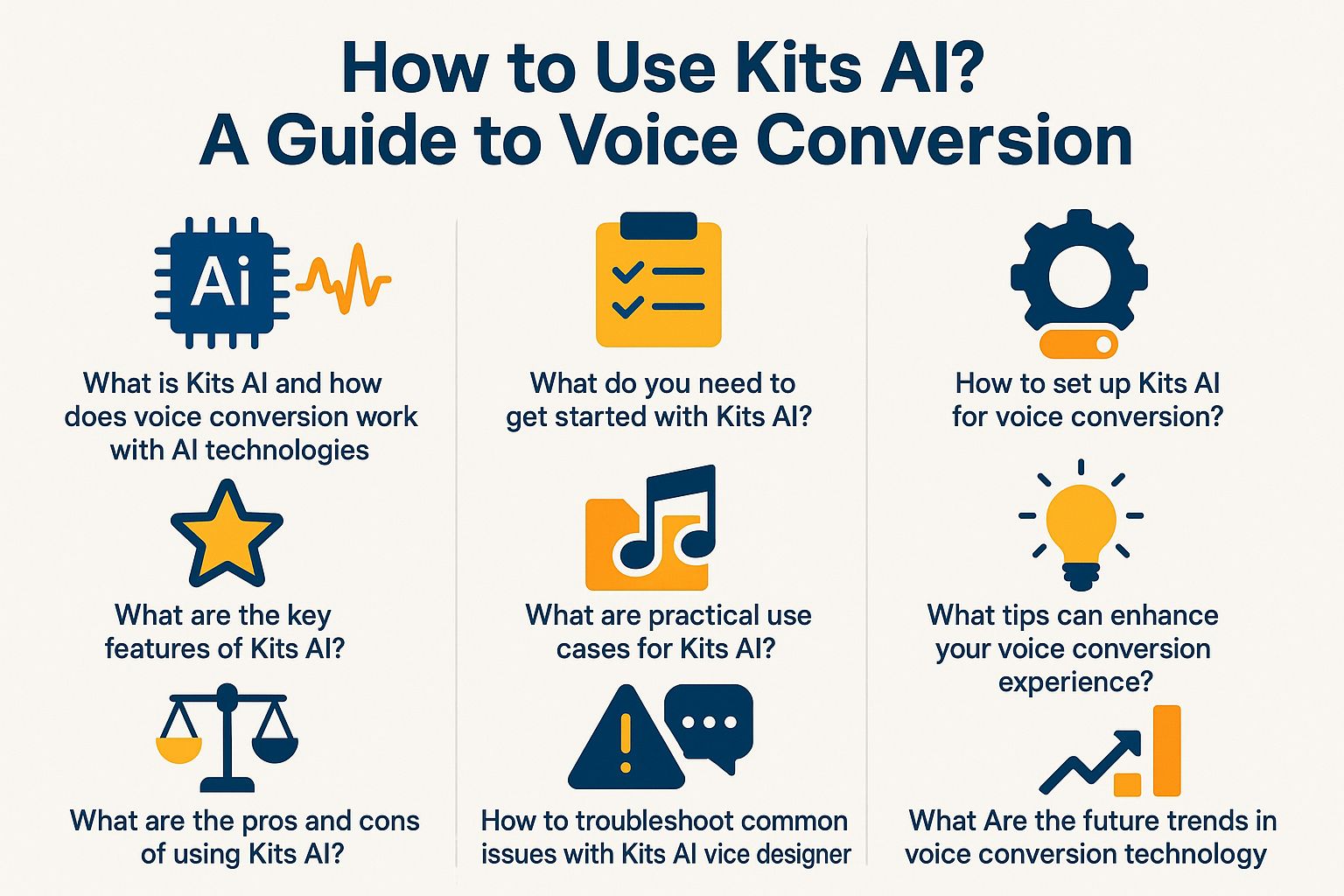
Leave a Reply